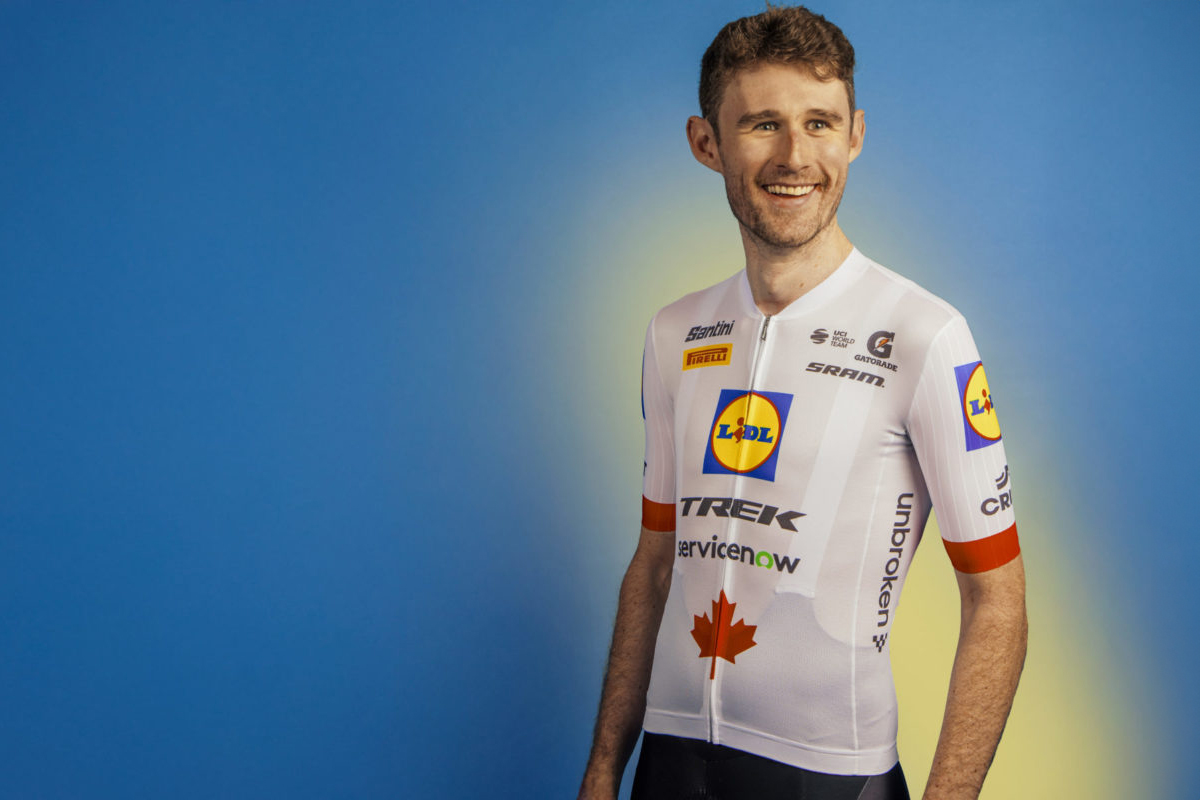Horner: What other American can they bring that's more popular than me?
Airgas-Safeway hoping a result at US pro will net invitations to big North American races
The latest race content, interviews, features, reviews and expert buying guides, direct to your inbox!
You are now subscribed
Your newsletter sign-up was successful
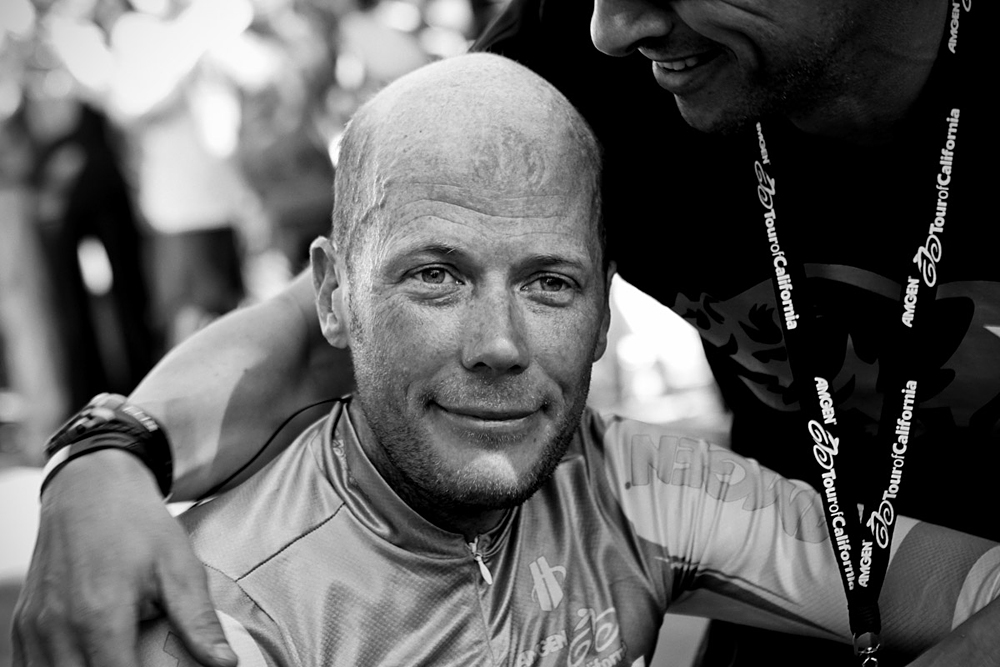
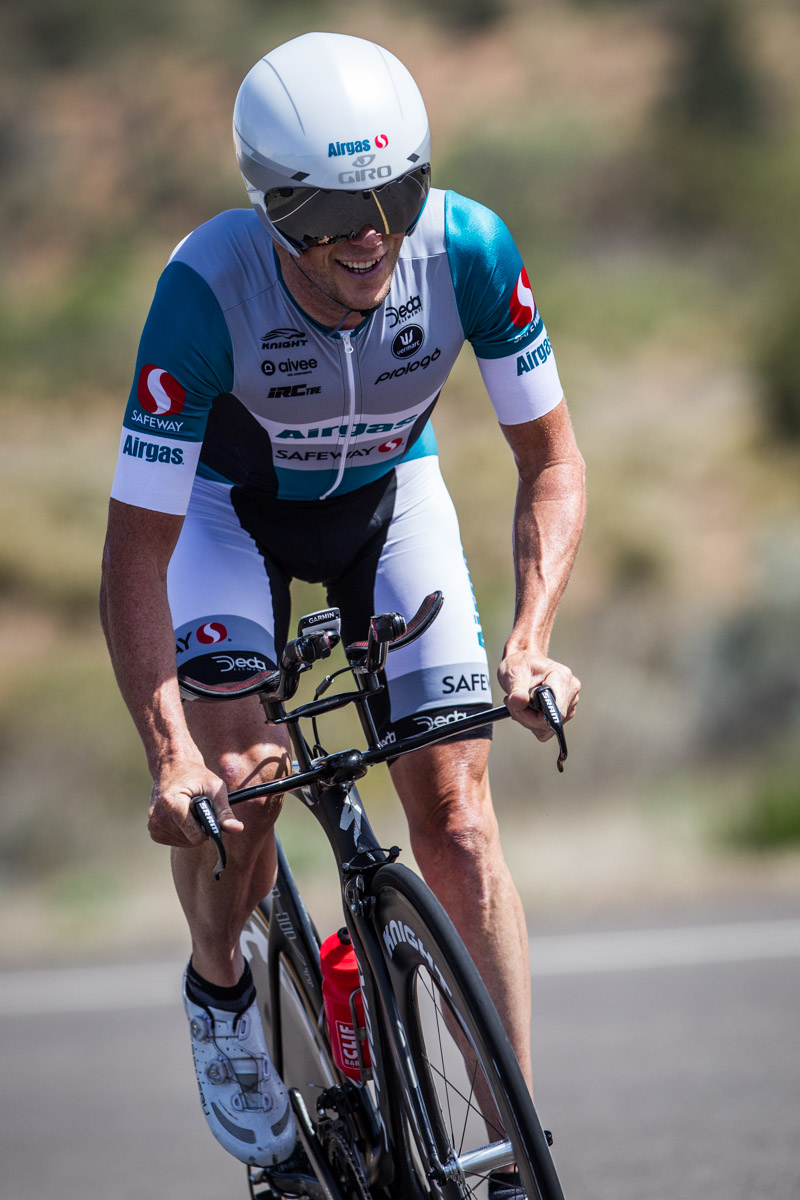
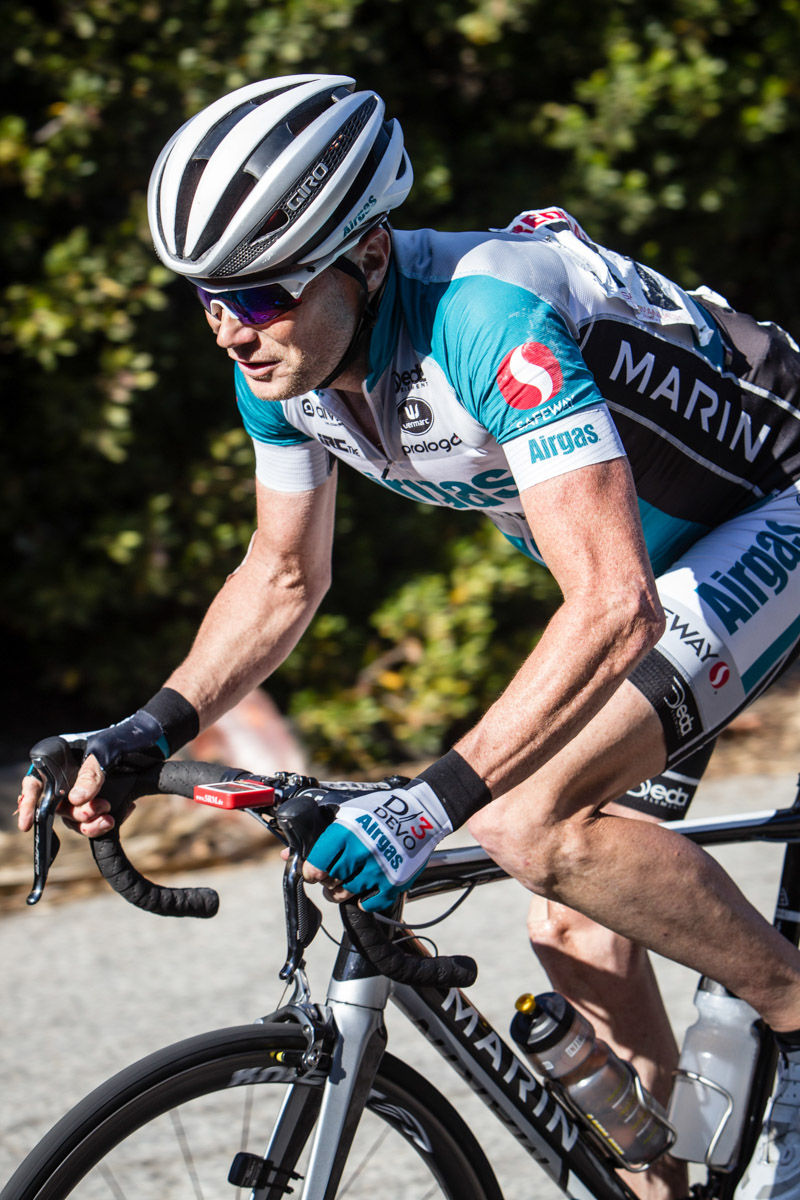
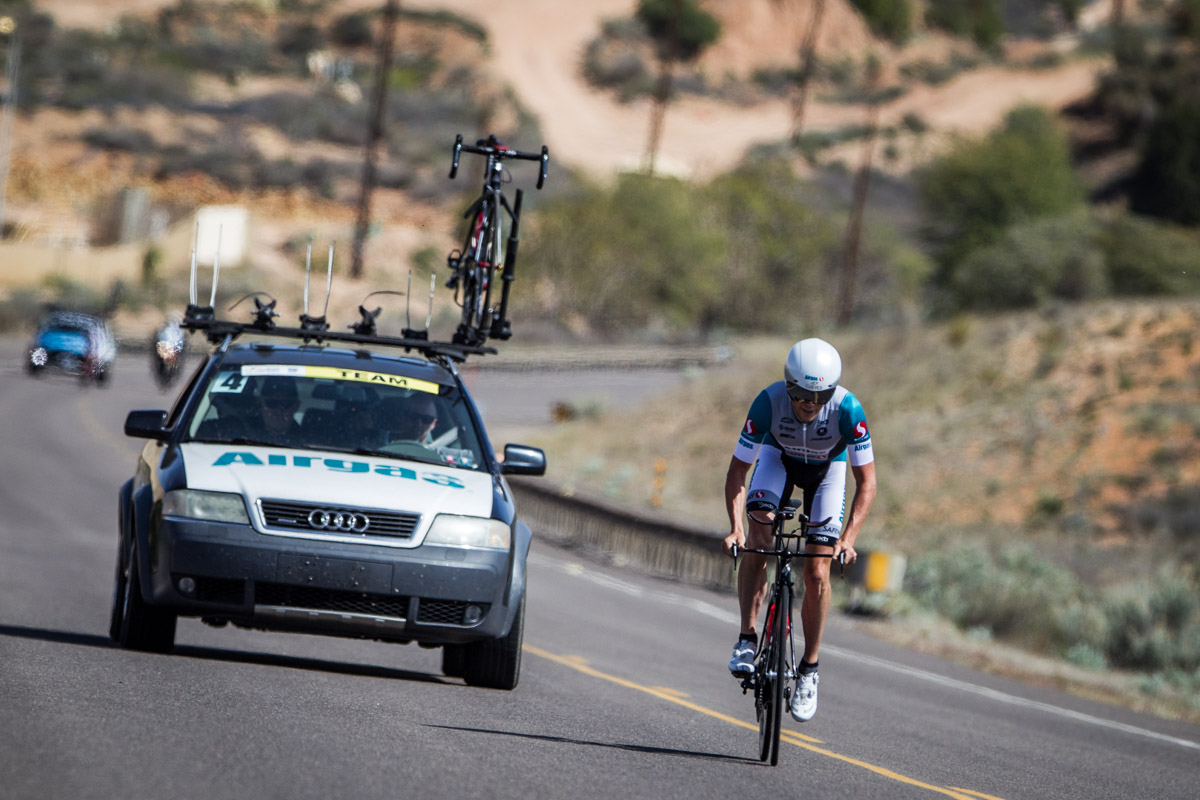
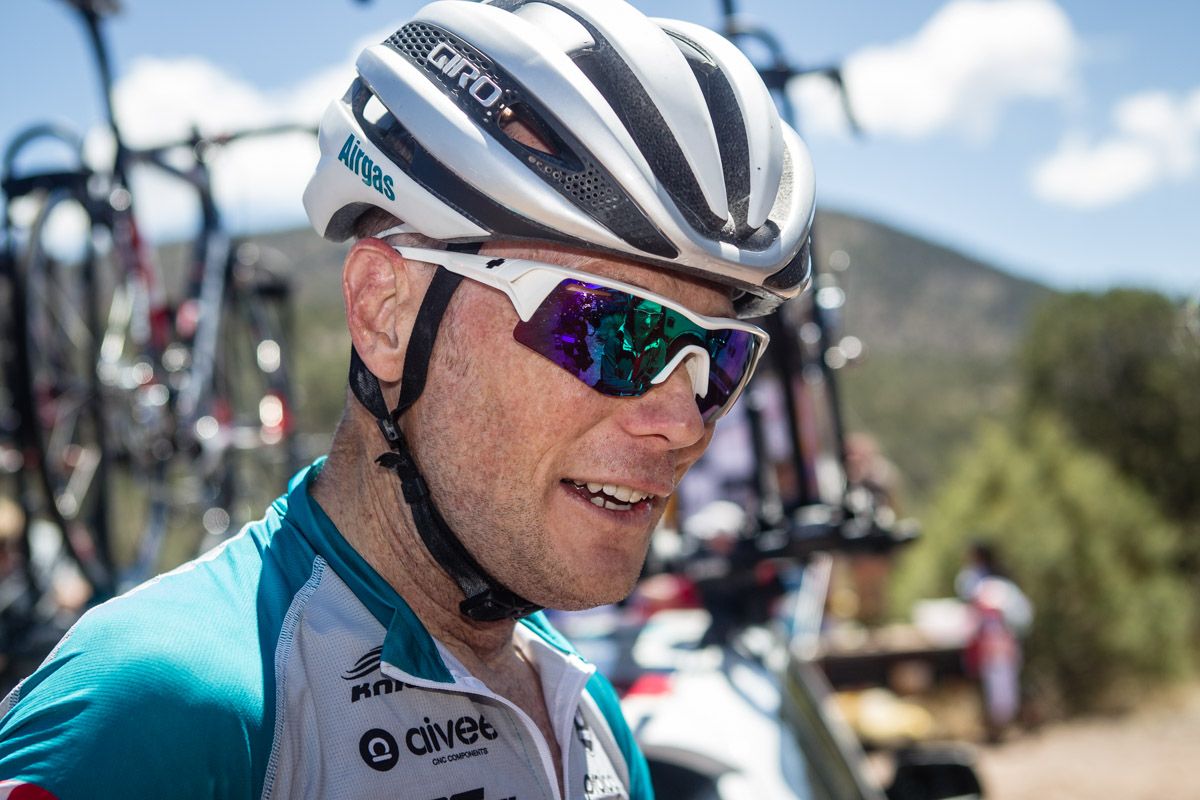
Chris Horner's triumphant return to US domestic racing from Europe and the WorldTour obviously hasn't played out as planned.
With goals of lifting the fledgling Airgas-Safeway team into some of the country's biggest UCI events, while also dominating the National Racing Calendar the way he did in the previous decade, the 2013 Vuelta a España winner signed with the Continental team long after most 2015 rosters had been established.
But a nagging health issue that began at last year's Tour de France – coupled with the failure to get an invitation to the Tour of California, a race Horner won in 2011 – sidetracked the 43-year-old's early season.
Horner could ride with the best at the Redlands Bicycle Classic in April and at the Tour of the Gila earlier this month, but he couldn't attack them or leave them behind. He finished seventh overall at Redlands and followed that with a similar result at Gila, coming in ninth in the general classification, 1:39 behind overall winner Rob Britton (Team SmartStop).
Horner was sixth during the opening stage, which ended with the 10km climb to Mogollon. He finished the stage with Optum's Michael Woods, 57 seconds behind winner Rafael Montiel from Colombia. During the final Gila Monster stage that Woods won, Horner finished fourth out of the lead group of seven, once again riding with the best but lacking the power to attack or drop them.
While the rest of the cream of US domestic cycling recovered from Gila with thoughts of the upcoming Tour of California, Horner and his Airgas-Safeway teammates jumped on a plane for New York City, where they caught a second flight for Eastern Europe and the UCI 2.1 Tour d'Azerbaïdjan that started just three days later.
Horner finished third during the summit finish on the second stage in Azerbaijan, and he was fifth on the final day, a hilly circuit in the city of Baku. Horner's teammate, Griffin Easter, earned his best result to date with a fourth-place finish from a breakaway during stage 4.
The latest race content, interviews, features, reviews and expert buying guides, direct to your inbox!
Now Horner is planning to line up for the US pro road race on Monday in Tennessee, where he and his young team hope to show that Airgas-Safeway is not a one-trick pony, but instead has the depth to pull off a win on a classic one-day course that has previously favoured fast finishers.
Having missed out on the California invitation, which led to speculation that the team's unproven roster – aside from Horner – didn't merit participation, the team is hoping a good performance this weekend can earn invitations to the USA Pro Challenge in Colorado or the Tour of Utah, where Horner has finished second to Cannondale-Garmin's Tom Danielson the past two years.
Utah has already announced 13 of the 16-team field, and as a 2.HC race it could invite three more WorldTour teams. Nevertheless, Horner and Airgas are still angling to get in.
"I'm continuing to check in with them," said Airgas-Safeway principle Chris Johnson. "I'm on my best behaviour and my riders are riding strong, so I hope the combination of the two … With Utah it's tough, because Chris has been second there the last two years."
Johnson is also hoping that results in the team competition at Gila and Azerbaijan will help convince organisers that the team has earned a spot in the big events. At Gila, the team finished second on team GC and was first in the team competition on the final day, putting three riders in the top 15. All eyes are obviously on Horner, but Johnson is hoping to impress people with his team’s depth.
"We've only done two UCI races this year, and we're showing how strong we are," Johnson said. "So if that's what they’re looking at to pick all these rosters, I think we deserve a shot. Winning a national championship would help on all fronts, so we're going for it this weekend."
Five Airgas-Safeway riders will join Horner on the roads in Chattanooga for Monday's race, including Easter, Alex Darville, Kevin Gottlieb, Connor McCutcheon and Matt Rodrigues. A large portion of the team's ambitions fall on the shoulders of Horner, however, so Cyclingnews caught up with him after he arrived in Tennessee Thursday night. The text of that interview follows.
Cyclingnews: How is the health doing? How are the lungs?
Horner: I've still got the problem so we'll see if I can clear it up. I'm trying out some heavy new antibiotics that I haven't tried before, so we'll see if that does the work for it or not.
...They're a little rough on the body itself, but it's not that big of a deal. We'll see how it goes on Monday because I've got a few more days. I just took the last of the round this morning, so it should be cleared and helping out and hopefully I'll be breathing better.
CN: When is the last time you raced nationals? It's been a few years.
Horner: I think the year Ben King won.
CN: That would have been 2009 or 2010?
Horner: Yeah, 2010, I think so, but it wasn't on this course, it was in North Carolina.
I've never been on this one so I don't have a lot of experience on the actual course route. I've heard some stories, but the good thing is it's a circuit, so I can figure it out quickly enough.
CN: Yeah, you'll get plenty of chances to look at it. The past winners on that course have been Freddie Rodriguez and Eric Marcotte, two guys with fast finishes, maybe more classics, one-day riders than a GC guy or climber like yourself ...
Horner: That's the hardest thing for me, honestly, is coming into a one-day race. You show up at the one-day races and you're still a big favourite. Everybody is fresh, everybody is strong, so everyone can mark the moves that you do, or they have extra teammates to help bring you back when you make an attack.
The one-day races have always, throughout my career, been harder to win than the stage races.
CN: So what does a guy like you, or your team, have to do to shake that up and change that this year? Do you have to make it harder on the climbs and hope they can't get back?
Horner: We don't have a team that can make it harder on the climbs. We have a bunch of 20- to 24-year-old kids on the team, and it’s not like they're pure climbers. So it's not like I'm going into a race where I can say, 'Hey guys we're going to light it up every time on the climb.'
So basically you have to play your tactics where – clearly Connor [McCutcheon] is riding well – so I think Connor can be protected, myself can be protected and we have three guys who can cover the moves and all that kind of stuff.
If Connor wants to get in an early move, that's a possibility, too. He's been riding really strong, and he's good at the finish of a race, so it would be ideal to have two or three of us at the finish, and then you can start playing with the tactics of attacking at the right time with your teammates back there sitting on instead of pulling through and stuff. That’s the ideal way of winning one-day races.
If you're not the outright fastest sprinter – the year Rodriguez won he was the fastest finisher there – and of course last year was the same scenario with SmartStop, too.
CN: They had three or four guys in the final selection.
Horner: They had three, and I'm pretty sure they they went first and second, but clearly they won and that's the only important spot. I've been second and third many times throughout my career – too many to count.
It's a race that needs to be a little harder on the climbs and stuff like that, so we'll see if the racing can be a little more selective and lose some speed at the finish. Because clearly if we come down to the finish with those guys, they have much more speed than I have. I no longer have any kind of a sprint to beat quality speed like that, so I have to win with a little tactics.
CN: They've added the short, punchy climb into every lap this year instead of just at the beginning and the end. That can help, too.
Horner: I haven't seen the climb myself, but that could be something right there that could upset the race. If you put a few more climbs in there it can change whether or not the sprinters can get to the finish.
CN: How has the season been going so far in general, other than the health issues?
Horner: The biggest problem has been the health part. The season's been fun when I'm hanging out with the team, because everybody's having a good time. It's just been difficult when we get into the racing and you're losing a little bit of that top-end speed that I'm used to having.
If you look at Gila, I'm used to being the guy who's causing the split on the climbs, instead I'm one of the guys who is just barely able to hang onto the front group.
Gila of course was a little bit better for me than Redlands because the distance of the race is longer, which is better because then it's not so explosive at the finish, which means you use less power. So I don't have a problem putting out good power, but I can't put out big explosive power with the problems I'm having with the lungs.
Of course, Gila was drier and it was at altitude, so it was better for me. Even Azerbaijan went well, too, because it's more of a desert climate. But here in Tennessee, probably, maybe the more difficult part of the season for me if the antibiotics don't do their job because of the humidity and stuff. So it will be interesting to see.
Honestly, for me, I wouldn't even have the team working for me at the beginning of the race. It wouldn't be until maybe the middle of the race or the last 25 per cent of the race. If I still felt good at that point and time, then I'd tell the team, 'OK, everybody works for me.'
Just like at Redlands or Gila, I would never put the guys on the front. You look at the first stage at Gila, when the break went up the road and all the teams were coming back asking me to put a guy on the front. Why would I put a guy on the front to finish fifth on GC? If I think I can win and I finish fifth, that's something different, but I'm not going to put young guys on the front and kill their chances of winning a championship race unless I honestly believe I have a shot at the win.
So I'll need a little bit of time in the race to see how my lungs are functioning and how it's worked with the medication and the antibiotics and just the different weather and climate we've got here.
CN: By then you'll have a good idea of how things are going?
Horner: Exactly. Exactly. For sure when we're sitting in a meeting Monday morning or Sunday night – whenever we do it – I'm not going to tell the guys on the team, 'OK, everybody is working for me tomorrow because I can win.' I've got to actually get in there and actually see how I feel.
Basically, the condition I have, the doctors have called it a chronic bronchitis. None of them can tell me if I can get rid of it. Is it going to be gone? Is it six months? Is it one year? Is it going to be for the rest of life or whatever? The best I can get from a doctor so far is that I have chronic bronchitis.
With a normal person with a nine-to-five job, you wouldn't even know you were sick. You would be at the office and you'd have no idea you were sick. You'd be fine.
It's such a small percentage of the lungs that's affected, but when you start breathing 10 or 20 times harder than a normal guy sitting in his office, you start to feel any loss of oxygen.
CN: The team obviously didn't get into California, do you have anything to say to the organisers of Tour of Utah, USA Pro Challenge or Tour of Alberta? A brief sales pitch?
Horner: I put on a show at all the races I've gone to. Even this year being sick, I'm still in the front group making the races exciting and stuff like that. Last year at Utah I was more sick than I have been all year, and I still put on a show there. Those races are perfect for me, Utah especially with the percentage of the climbs how steep they are. It's fantastic for my style of riding, and the length of the courses is good for me too.
There is no other US rider that you can bring that's a bigger name than me or is more recognisable than me. So I would assume we’re going. But I assumed we were going to California, too. So I guess it's up to the organisers to decide. I never even second-guessed whether or not we were going to do California. I thought we were in from the get go.
You know. Who else are they going to bring as an American that's more popular than me? There is no one. So if they want better exposure and they want more exciting racing, then they need to bring Airgas. Because that's the only way I'm going to show up [laughs].
CN: Keep the Danielson-Horner rematch going in Utah?
Horner: Yeah. Exactly. Exactly. [Without me] it would be a one-man show. I don't know. Clearly no one else can climb with Danielson, and the blows that he and I are putting back and forth on each other makes that race pretty exciting. So I assume we're in, but like I say, I assumed we were in for California, and that didn't work out. For whatever reason they didn't want to bring us, and we had to change the plans around.
It changed things a little bit for National Championships. It would have been nice to do California so we had just the right amount of days and less travel doing California than coming back and forth to Europe. Azerbaijan was a really nice race, actually. I quite enjoyed it. The only problem with that, of course, was the really long transfers back and forth and then back home.
Growing up in Missoula, Montana, Pat competed in his first bike race in 1985 at Flathead Lake. He studied English and journalism at the University of Oregon and has covered North American cycling extensively since 2009, as well as racing and teams in Europe and South America. Pat currently lives in the US outside of Portland, Oregon, with his imaginary dog Rusty.
